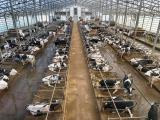Feb 16, 2004 (CIDRAP News) – A leopard in a zoo near Bangkok, Thailand, died of the same H5N1 avian influenza virus that has struck eight Asian countries, according to news service reports today.
Thai Environment Minister Prapat Panyachatraksa said tests on a clouded leopard that died Jan 27 showed it had the H5N1 virus, according to a Reuters report. "We believe it might have eaten some unhealthy chickens," Prapat was quoted as saying. He said a tiger at the same zoo was recovering from the same virus.
The case appears to be the first confirmed one in a species other than birds and humans in the current outbreaks. Earlier this month there were reports of the virus turning up in nasal swabs from pigs in Vietnam, but the United Nations Food and Agriculture Organization said there was no evidence of actual infection in pigs.
Also today, the World Health Organization (WHO) confirmed a 20th human case of avian flu in Vietnam, this one involving a young man from Ho Chi Minh City. The Associated Press (AP) reported a 21st case, in a 15-year-old boy in a northern province.
The WHO today listed a total of 28 human cases with 20 deaths. Vietnam has had 20 cases, 14 fatal, while Thailand has had 8 cases, including 6 fatal, according to the WHO.
In other avian flu developments:
- Pennsylvania officials identified the virus in a flock of chickens in the southeastern town of Mount Joy as H2N2. In a Feb 13 news release, officials said the virus poses little threat to the poultry industry or humans.
- In Thailand, cases turned up in eight areas where officials thought they had eliminated the virus and in one area that had not been affected previously, according to a Reuters report.
- Chinese officials confirmed avian flu in poultry in Tibet, raising the number of affected regions to 16 out of 31, according to an AP report.
- Japanese officials said they plan to declare their avian outbreak over if no new cases are found this week, according to a Reuters report. An outbreak was discovered at one farm in mid-January, but it appears to have been confined there, the report said.
See also:
Feb 16 WHO statement
http://www.who.int/csr/don/2004_02_16/en/



















